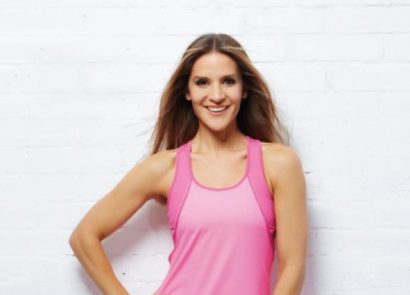Aah, the ever-spinning cycle of work, family commitments and life admin. As busy weeks whiz by, maintaining friendships can feel like a chore rather than a pleasure. Friend-dumping draining acquaintances can be blissfully liberating but what happens when we find ourselves short of meaningful friendships and stuck for opportunities to make new connections? Your teenage years might be filled with friendships, but making mates can be difficult as an adult with a family, career and financial commitments. Here, the experts reveal how to find new pals.
Take it seriously
Humans are, quite literally, social animals. We’re reliant on safe and secure relationships, with a circle of friends to help us thrive. We’re not wired for social isolation – in fact, it’s harmful to us. Research suggests loneliness can speed up ageing, impact our sleep, weight, mental health and longevity. And yet many of us neglect our social life. “Most people in couples spend far too much time together and not enough time making new connections because it often threatens the relationship or security of the partner,” says relationship expert Kate Mansfield (katemansfield.com). “This is a big mistake because it actually keeps your relationship fresh and exciting to have some competition and to expand your interests and connections. Single people often stay stuck with what is familiar, hanging out with a small group of old friends.”
Identify your hang-ups
Is your history littered with broken friendships? Even a short therapeutic intervention could help identify recurring problems. “The feelings we have about adult friendships will be influenced by our first friendships and how we perceive social connection; whether we can make ourselves vulnerable enough to develop a connection or are surrounded with feelings of anxiety or mistrust,” suggests Dr Elena Tourino, consultant psychologist at The Chelsea Psychology Clinic (thechelseapsychologyclinic.com). “Patterns emerge at a young age and behaviour solidifies around the teenage years. Once you begin to have problems [making or keeping friends], your internal working model about friendship might become ‘This is something I’m not good at.’ A consequence of that might be that it’s hard to reach out, socialise, or to realise that people have good intentions.”
Challenge your preconceptions
OK, so there can be a cringe factor involved in ‘putting yourself out there’ to meet new people, but your inner teenager – self-conscious and quick to judge – may be holding you back. Maybe activities you’ve previously written off, such as joining the Women’s Institute, trying an evening class or attending a local parkrun, deserve a second look. “It’s not as simple as joining one book club,” says Kate. “You have to make the effort and take a risk in terms of creating new friendships.” For communications manager Kimberley (see panel) finding a tribe is all about leaving your comfort zone. “Making new friends took a new state of mind,” she recalls. “I felt ‘I must be open to this, I have to say “Yes” even if I’m tired after work. Even if I only stay for one drink, I can say I’ve been and tried to be sociable.’”
Don’t wait ‘til you’re feeling more ‘sparkly’
Are you a radiator or a drain? According to experts, it doesn’t matter. “When we feel isolated or not very confident this can be the best time to reach out,” says Kate. “Most people feel the same way that you do – insecure or not good enough. Friendship is mutual, so you could be helping someone else to not feel lonely, or to expand their horizons.” Dr Elena agrees that generating positive vibes isn’t essential. “I’d say what’s important isn’t necessarily how someone appears but their capacity to emotionally connect. When someone’s quite depressed or inward-looking it makes them quite detached and disconnected, in which case it’s very difficult to form new relationships. But research suggests that being authentic and showing a little vulnerability facilitates greater connection and friendship.”
Look for quality, not quantity, of relationships
Awkward, tedious and even toxic friendships are all too easily formed, so keep a close eye on your needs. Reciprocal friendships – with give and take on both sides – will have a longer shelf-life. “Go with your gut instincts,” says Kate. “We so often ignore these for the sake of having just anyone to fill the time with. This will only make you feel more lonely. Notice and observe what people do, more than what they say – toxic people often have big discrepancies between the two. Also, have standards beforehand and stick to them. Trust that the right people will come; it’s better to have fewer more reliable or interesting friends than hundreds of people who make you feel bad.”
“I went on a holiday on my own and it was fantastic”
When hairdresser Denise Frankland (57) faced her fears of travelling solo, the rewards were unexpected…
I’ve been divorced for 10 years; my children are grown up and doing their own things. I have plenty of friends but, this year, I couldn’t find anyone to go on holiday with. I couldn’t bear the thought of going through the winter without a holiday so started to think about going on my own. It took me almost a week to book the trip and I nearly cancelled it. I couldn’t sleep for two nights worrying about it, but then I Googled ‘solo travelling Kefalonia’ and found a Facebook page full of posts from women who’d gone alone and had a great time. I got messages from other travellers and women who live there offered to meet up. It t gave me the confidence to go because I felt I already had friends to meet up with.
It turned out to be a fantastic trip. I met lots of people who I got on really well with, so much so that I’m still in touch with three women I met on the sightseeing tour and we’re thinking of going to Skiathos next year. Confidence wise it’s done an awful lot for me.
“Now I’ve got the confidence to join the office ‘cool crew’ at the pub”
For communications manager Kimberley-Marie Sklinar (36) circumstances required a pro-active approach to making new friends
It was when I was going through a period of chronic illness and a brutal divorce that I realised I didn’t have many friends I could lean on. Moving from London to my hometown of Leeds I had to start all over again finding people to hang out with. I discovered GirlCrew, a group created by a woman who’d put herself on Tinder to look for female friends. One day I posted “I’m a bit of a craft beer nerd, I like hanging out in taprooms – does anyone want to join me?” I got loads of responses and set up a WhatsApp group called Girls Who Beer. I made five best friends for life in the process.
Contacting the Leeds GirlCrew put me in touch with people who were in the same situation as me – they’d moved here after uni and lost touch with their previous social group. Making new friends has given me the confidence to do more on my own. I used to head home when the ‘cool crew’ went to the pub after work. Now I go on my own to see who’s there.




















